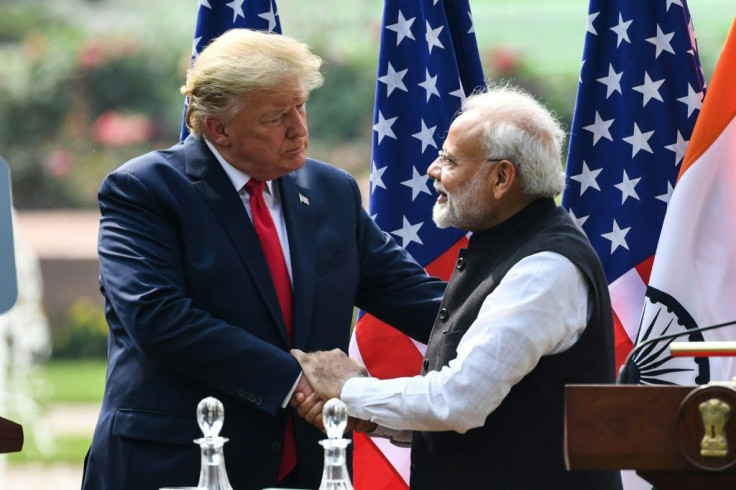Coronavirus Drug: India Releases Hydroxychloroquine And Paracetamol After Trump Speaks To Modi

India has removed bans on Hydroxychloroquine (HCQ) after facing pressure and perhaps a prospect of retaliation by the U.S. and President Donald Trump.
With a population just short of 1.4 billion people, second only to China, India has yet to feel the full impact of the global pandemic caused by the coronavirus. The latest statistics from Worldometers, a website that is tracking COVID-19, shows India with only 4,858 confirmed cases and 136 deaths as of April 7.
By all appearances, this is a ticking time bomb considering areas of India with a dense and financially stressed population and a health system ill-equipped to handle a major health crisis.
Ironically, India may also be the key to ending the global pandemic because it is a major supplier of HCQ, usually an anti-malaria drug that has shown promise as an effective treatment for COVID-19. One of HCQ’s biggest advocates is none other than President Trump.
Recently Michigan State Representative Karen Whitsett, a Democrat from the Detroit area, thanked Trump for touting the drug, and thus saving her life from the coronavirus.
Last year, India supplied nearly half of the hydroxychloroquine to the U.S, market, reports said. But on Saturday, April 4, India’s Prime Minister Narendra Modi put a total ban on the export of HCQ. This eliminated the “exceptions” for exports made a month earlier when a partial export ban was placed on HCQ, pain reliever Paracetamol plus dozens of other drugs. The ban meant half the U.S. supply of hydroxychloroquine was taken out.
The prime minister’s motives seemed quite “Trumpish” in its “India First” attitude to ensure that the domestic stockpile can meet India’s demands in the case of an outbreak of COVID-19.
Modi and Trump spoke over the weekend where Trump was insistent that the bans be released or that India may face some form of retaliation, likely a financial sanction.
India’s foreign ministry spokesman Anurag Srivastava addressed the lifting of the bans. He said, "It has been decided that India would license paracetamol and HCQ in appropriate quantities to all our neighboring countries who are dependent on our capabilities. We will also be supplying these essential drugs to some nations who have been particularly badly affected by the pandemic.”
Alice G Wells, the U.S. Acting Assistant Secretary of State for South and Central Asia, told reporters during a press briefing that “India has long been a significant partner of the United States and the pharmaceutical sector.” She added that she expects “cooperation to continue between the economies.”
Indian pharma companies are making efforts to ramp up production of hydroxychloroquine, although they are dependent on China for the active pharmaceutical ingredients (APIs) that go into the drug. The prices of APIs from China have nearly doubled after the coronavirus disruptions, Indian media reports have said.
The Trump administration is betting that if more positive news emerges about HCQ, then the national strategic stockpile of 29 million doses of HCQ’s and its cousin, the malaria drug chloroquine (CQ), will be in greater demand than it already is.
More than 1,500 COVID-19 patients in New York are undergoing trials with CHQ. Scientists have begun testing HCQ and CQ as candidates for potential COVID-19 treatments. Last week, the FDA issued an Emergency Use Authorization for the prescription of the drugs in serious cases.
© Copyright IBTimes 2024. All rights reserved.





















